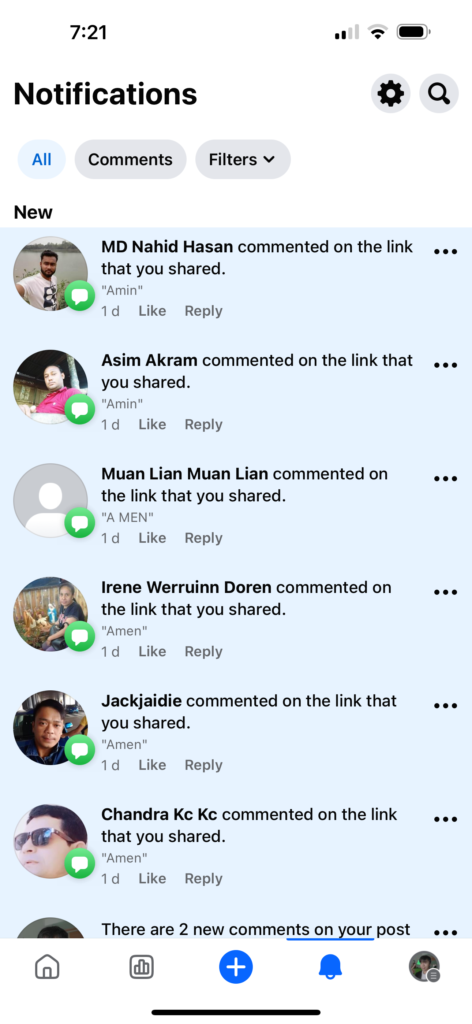Most students intending to take GCSE First Language English realize that there are various options available and different examination boards.
Today, however, we will talk about two different First Language English qualifications offered by the Cambridge International Examinations Board: 0500 and 1123. Both of these can be taken by international students who want to receive a Cambridge qualification.
Many students frequently grapple with the difference between 0500 and 1123. This uncertainty often presents a hurdle as they attempt to decide which curriculum suits them best. In this article, we’ll delve into some of the distinctions between these curricula while also acknowledging their significant similarities.
Are you ready to clear up your confusion? Let’s dive in!
Both the 1123 and 0500 examinations are accredited by the University of Cambridge and designed for first-language English speakers.
However, their focus and emphasis differ; the 1123 primarily caters to students in the United Kingdom, whereas the 0500 is designed for international students; both of these curricula can be taken by students anywhere, though, which can create some confusion for students at large.
Nonetheless, have a look at the syllabi side by side, and you’ll be able to see how they differ from one another from a bird’s eye’s perspective.
Here is the 1123 syllabus for 2024 and beyond, and here is the 0500 syllabus.
Additionally, there are several differences that become noticeable when comparing the exam papers side by side.
A detailed comparison is provided below for your perusal, featuring the 1123 specimen exam paper for examination in 2024 and beyond, and the 0500 exam papers in October-November 2022.
Let’s first look at Paper 1 for each.
Paper 1
Let’s discuss the differences in Paper 1 for 1123 and 0500.
In Section A of both exam papers, students are required to answer questions based on a provided text.
The structure of the questions is strikingly similar for both papers.
Particularly, the first question, 1A, in both papers is a factual one.
The second question, 1B, demands that students use their own words to explain a particular phrase in the text.
The slight discrepancy lies in the fact that the 0500 paper asks for two separate meanings of phrases.
In part 1C, both exams necessitate students to provide two facts derived from reading and comprehending the given text.
Part 1D follows a similar pattern.
However, part 1E and onwards show some divergence. While the 1123 paper continues to pose questions about facts and requires students to explain aspects of the text, the 0500 paper asks students to use their own words to describe how the father’s actions at the table could be seen as a kindness.
From 1F onwards, the papers significantly diverge. The 0500 paper transitions into a full-on summary question, a tactic not mirrored in the 1123 paper, which continues to assess student comprehension of the facts in the text. However, it’s worth noting that summaries are indeed tested in 1123, but in Question 3.
Let’s now move on to Question 2, where we will observe more similarities and differences between the papers.
Question 2
Question 2 in both 1123 and 0500 reveals a significant departure in format, but they essentially assess the same skills, albeit in slightly different ways.
In the 1123 paper, Question 2 remains focused on the same text used for Question 1, asking students to analyze the writer’s effect. In contrast, the 0500 paper continues the discussion in Section B, asking students to identify words and phrases, albeit in a different text.
Part B of Question 2 in the 1123 paper explicitly instructs students to discuss the differences in word choice, particularly why the writer uses “stronger” instead of “strong” in the phrase “a stronger branch.” In the 0500 paper, students are asked to clarify the meanings of three words in the context of the text.
Part C of Question 2 in the 1123 paper requires students to discuss two impressions the writer aims to convey in a particular sentence. The 0500 paper asks students to explain how a writer suggests characters and feelings of two specific characters in the text.
However, when it comes to 2D in both papers, any difference seems merely a shift in emphasis. The 1123 paper spreads the Writer’s Effect assessment throughout the entire question, while the 0500 paper compartmentalizes this aspect into a single section.
In essence, the entirety of Question 2 in the 1123 paper is dedicated to the writer’s effect, while in the 0500 paper, this is primarily tested in part D of Question 2.
Question 3
Question 3 of the IGCSE First Language English (1123 and 0500) papers requires students to utilize their reading comprehension skills to understand the text and craft a coherent response.
Looking at Question 3A, students are asked to write a summary of no more than 150 words. This differs from the summary in the 0500 paper, where students are asked for a 120-word summary in Question 1F.
While the tasks are similar—requiring students to synthesize points to fit within the word count—there seems to be a greater focus on comprehension and in-depth understanding in the 1123 paper, consistent with its emphasis on an extended response to reading.
Additionally, the 1123 paper includes a component, 3B, where students respond from a character’s viewpoint.
Question 3 in the 0500 paper demands a greater degree of this skill. As evident in the requirement to write a letter from Hua’s perspective about her new business venture—an exercise that not only demands reading comprehension, but also necessitates an appreciation of the broader context of the text over an extended period.
On the other hand, here’s paper 2!
Paper 2
Let’s discuss the differences and similarities of these two papers.
One notable difference in the 1123 exam is the inclusion of a text within the question paper itself. Contrastingly, the 0500 exam includes the text in a separate insert. However, both exams require students to evaluate the ideas and opinions presented in the texts, demanding an explanation of the reasoning and thought processes behind their responses.
The 0500 exam tends to require more comprehensive reasoning within the responses. The response lengths are identical in both exams, but the allocation of marks varies. For the 1123 exam, 10 marks are awarded for the content of the answer and 15 marks for the quality of writing. Conversely, the 0500 exam allocates 15 marks for answer content and 25 for writing quality.
Despite this, these differences are only surface level. Fundamentally, both of these section A questions account for half of the marks allocated to their respective question papers.
Moving on to section B, we observe more similarities between the papers. In the 1123 exam, section B is allocated 10 marks for content and structure, and 15 marks for style and accuracy. For the 0500 exam, the marks are 16 for content and structure, and 24 for style and accuracy.
A further similarity is that both papers assess descriptive and narrative writing. Although the prompts differ, they ultimately evaluate the same set of skills, namely, creativity, command of language, organization, and coherence of ideas. This suggests that both papers value the ability to craft compelling and grammatically sound narratives that effectively convey the student’s understanding of the text.
Which is more difficult?
Whether the 0500 or 1123 paper would be more difficult largely depends on a student’s individual strengths and weaknesses, as each paper places emphasis on different skill sets. The 0500 paper, with its emphasis on personal engagement, introspection, and fluency in English, might be more challenging for students who struggle with crafting personal narratives or applying language creatively and accurately. On the other hand, the 1123 paper, which requires textual comprehension, critical analysis, and broader perspectives, might be more difficult for students who find it challenging to critically analyze texts and craft well-structured arguments.
However, it’s important to note that both papers are designed to assess a student’s proficiency in English writing and offer different contexts and genres to showcase their skills. Hence, while the papers are different in their focus and style, they are similar in their overarching goal, which is to assess the students’ proficiency in written English.
In terms of equivalence, both exams are designed to assess key skills in English language writing, including the ability to understand and respond to a variety of texts, use language creatively and accurately, and structure and organize writing effectively. These core skills are essential to succeeding in any English language assessment and both exams aim to assess them, albeit through slightly different methods.
Therefore, a student who does well in the 0500 paper should theoretically be able to perform well in the 1123 paper, and vice versa, provided they adapt to the differing demands and expectations of each paper. Students should choose the paper that best aligns with their strengths and the areas of English language writing they feel most confident in. The decision could also be influenced by the specific requirements or recommendations of the educational program or institution they are part of or aiming for.
As you’ll see, the assessment structures of these exams are strikingly similar, almost identical, with only minor variations in content. Because of this, many students who enroll in either course also attend my Thursday session.
Why would a school prefer one over the other? There’s no uniform answer to why a school would opt to teach one curriculum over the other. The choice ultimately comes down to personal preference and the curriculum to which the school subscribes. This determines which exam they register their students for. However, when you reference Cambridge International’s official explanation as to the differences of the curricula, you’ll understand a little better – Cambridge specifically mentions that:
Cambridge O Level offers fewer coursework options than Cambridge IGCSE.
• Some Cambridge O Level syllabuses were developed to meet specific local needs, such as minority languages.
• The focus of Cambridge O Level languages is on writing and reading skills
• There are more restricted practical test options in Cambridge O Level sciences. These constraints are advantageous to some schools where resources are limited.”
Some possible reasons as to why a school may pick 1123 is that the school itself as a whole may have elected to choose O Levels rather than the IGCSE curriculum, perhaps due to the advantages mentioned above. For instance, if there’s less of a practical requirement, a school may not need to create certain kinds of accommodations such as laboratories and other kinds of facilities that might be challenging to provide, which may hence lead the school to choose O Levels at large.
If you are interested in a more comprehensive rationale as to why it is that your school has chosen 1123 over 0500 or otherwise, though, I suggest writing an email to your school’s English Head of Department, in order to find out firsthand 🙂
Generally speaking though, even if you cannot get the information that you seek, both curricula are rather similar in terms of what they assess for IGCSE English, and any differences between them are minor and therefore not very consequential. In effect, they can be considered to be equivalent to one another.
Consequently, it’s entirely acceptable for 1123 students to share a learning environment with 0500 students. This is a typical occurrence in my Thursday class, which focuses on the 0500 curriculum.
However, it’s worth noting that both these curricula significantly differ from the Pearson assessment model, which demands distinct skills and proficiencies compared to the 1123 and 0500 curricula; I may cover that in a future post – to stay updated, make sure to keep us bookmarked so you don’t miss a single post!




